Homeowners Insurance
A Homeowners Insurance policy (HO3) is issued to the owner of a property when it is used as their primary, secondary, or seasonal residence. The most common property form is the Homeowners Special form (HO3). Certain causes of loss are excluded including damage from floods, earth movement, maintenance, and design flaws. The Homeowners policy includes coverage for your personal property inside the home, loss of use, other structures, and personal liabilty. Additional coverages are often available to meet a homeowner’s specific needs.
Dwelling Fire Insurance
Property rented to others may be insured under a Dwelling Fire property form. The most comprehensive policy available is the Dwelling Fire Special (DP3) if the property is eligible. Vacant properties are not eligible for coverage under the Homeowners policy or the Dwelling Fire Special, but can usually be written under a Dwelling Fire Basic form (DP1), which offers only the most basic insurance. In some cases, it may be necessary to insure rental properties under a Commercial Package policy.
Condominium Owners Insurance
Condo Insurance (HO6) is designed to provide insurance to the owner of the condo unit when it used as their primary (or secondary) residence. In some instances, coverage can be added to allow the condo owner to rent their unit to others. Not all companies will allow this option.
The condo policy can provide coverage for the interior structure of the unit, certain betterments and improvements, personal property, loss of use, and personal liability. Similar to a Homeowners policy, certain coverages may be added for an additional premium.
Tenant’s Insurance
A Tenant’s policy (HO4) is designed for those who are renting a home or apartment. It covers personal property that is kept in the home up to the limit chosen. It also includes loss of use and personal liability.
Take inventory of your belongings before a claim occurs.
Keep receipts whenever possible.
Insurance Inspections
Most of our current homeowner carriers are taking steps to prevent future losses. Most insurers today are conducting property inspections on all of their insureds. If a potential hazard is identified, you will be notified by either your company or this agency. Some of the common things carriers are looking for include:
- Presence of liability hazard such as an aggressive dog, a trampoline, an unsecured pool
- Peeling or cracking paint or siding
- Excessive debris in the yard
- Brush overhanging onto house OR detached structures
- Condition and age of roof
- Visible cracks in foundation
- Lack or condition of safety hand rails
ANY INSPECTOR ASSIGNED TO YOUR HOME WILL BE CARRYING PROPER IDENTIFICATION! Most inspections will be EXTERIOR inspections. We strongly advise that any request for INTERIOR inspections be by appointment only and verified through our office.
Flood Insurance
Damage caused by “Flood” is specifically excluded on a homeowner’s policy. This poses a huge problem for insureds who suffer property damage caused by flooding when they did not purchase a seperate Flood Insurance policy.
Flood Insurance is available to just about anyone who would need it. For properties in a flood hazard zone, mortgage companies will most definately require that flood insurance be purchased. Flood insurance for a home in a hazard zone will be costly, however properties outside of the hazard zones may qualify for preferred rates. These premiums are extremely affordable.
Earthquake Coverage
The homeowner’s policy excludes damage caused by earth movement. “Earthquake Coverage” can be added to your homeowner’s policy for an additional premium. If you think you have Earthquake coverage on your policy, please make sure it is listed on your Coverage Selections Page. If you would like to add this coverage to your policy, please contact our office. Prices vary based on territory and deductible.





